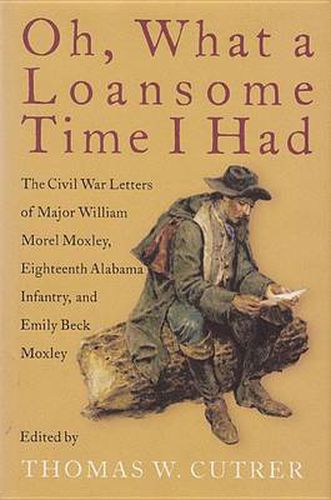Readings Newsletter
Become a Readings Member to make your shopping experience even easier.
Sign in or sign up for free!
You’re not far away from qualifying for FREE standard shipping within Australia
You’ve qualified for FREE standard shipping within Australia
The cart is loading…






Most surviving correspondence of the Civil War period was written by members of a literate, elite class; few collections exist in which the woman’s letters to her soldier husband have been preserved. Here, in the exchange between William and Emily Moxley, a working-class farm couple from Coffee County, Alabama, we see vividly an often-neglected aspect of the Civil War experience: the hardships of civilian life on the home front.
Emily’s moving letters to her husband, startling in their immediacy and detail, chronicle such difficulties as a desperate lack of food and clothing for her family, the frustration of depending on others in the community, and her growing terror at facing childbirth without her husband, at the mercy of a doctor with questionable skills. Major Moxley’s letters to his wife reveal a decidedly unromantic side of the war, describing his frequent encounters with starvation, disease, and bloody slaughter.
To supplement this revealing correspondence, the editor has provided ample documentation and research; a genealogical chart of the Moxley family; detailed maps of Alabama and Florida that allow the reader to trace the progress of Major Moxley’s division; and thorough footnotes to document and elucidate events and people mentioned in the letters. Readers interested in the Civil War and Alabama history will find these letters immensely appealing while scholars of 19th-century domestic life will find much of value in Emily Moxley’s rare descriptions of her homefront experiences.
$9.00 standard shipping within Australia
FREE standard shipping within Australia for orders over $100.00
Express & International shipping calculated at checkout
Most surviving correspondence of the Civil War period was written by members of a literate, elite class; few collections exist in which the woman’s letters to her soldier husband have been preserved. Here, in the exchange between William and Emily Moxley, a working-class farm couple from Coffee County, Alabama, we see vividly an often-neglected aspect of the Civil War experience: the hardships of civilian life on the home front.
Emily’s moving letters to her husband, startling in their immediacy and detail, chronicle such difficulties as a desperate lack of food and clothing for her family, the frustration of depending on others in the community, and her growing terror at facing childbirth without her husband, at the mercy of a doctor with questionable skills. Major Moxley’s letters to his wife reveal a decidedly unromantic side of the war, describing his frequent encounters with starvation, disease, and bloody slaughter.
To supplement this revealing correspondence, the editor has provided ample documentation and research; a genealogical chart of the Moxley family; detailed maps of Alabama and Florida that allow the reader to trace the progress of Major Moxley’s division; and thorough footnotes to document and elucidate events and people mentioned in the letters. Readers interested in the Civil War and Alabama history will find these letters immensely appealing while scholars of 19th-century domestic life will find much of value in Emily Moxley’s rare descriptions of her homefront experiences.